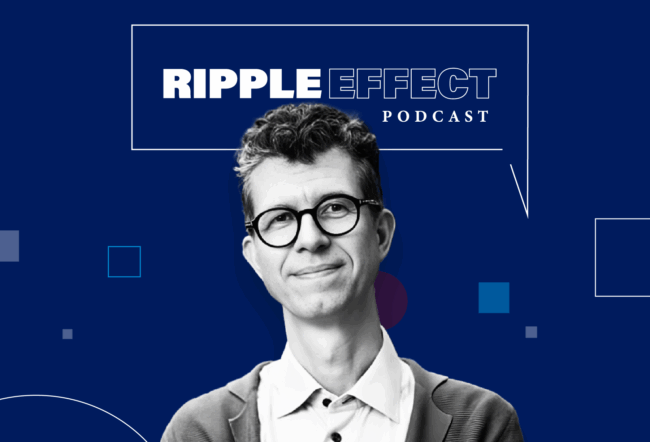Sam Williams’ Free as in Freedom: Richard Stallman’s Crusade for Free Software is at once a meditation on freedom, a biography of a man, and a story about technology. It’s a case study in classical liberal philosophy, a history of the free software movement, and a life of that movement’s patron saint.
“Saint” is not too strong a word for Richard Stallman, whose scruffy asceticism, monastic lifestyle, otherworldly intensity, and singleminded devotion to his cause regularly strike people as peculiarly religious. The language of messianic charisma surrounds him: He has been likened to the Russian seer Rasputin, to an Old Testament prophet, and to Christ’s disciples. Most dramatically, Linus Torvalds has called him “the god of free software.” Stallman is an atheist, but he nonetheless exudes a sort of secular piety. Today he walks the earth like the spiritual wanderers of old, spreading the free software word with untiring missionary zeal.
Williams’ account of Stallman’s “crusade” both buys into the St. Stallman hype and works hard to undercut it. True to the spirit of play that animates hacker culture, this is one saint’s life that does not take itself or its subject too seriously.
Stallman is wonderfully mortal in Williams’ account: We see Stallman as a precocious boy, teaching himself calculus, reading philosophy, struggling with borderline autism, refusing to do his English homework, and lamenting his lack of physical coordination.
We see Stallman as a young man, studying math at Harvard, discovering the programming culture of MIT’s Artificial Intelligence Lab, dropping out of Harvard and literally moving into the AI Lab, watching his community die as the Lab’s programmers took cushy development jobs at software corporations, and eventually deciding to devote his life to recreating the culture he had lost by dedicating his life to a “crusade” for free software.
We see Stallman as a middle-aged anti-hero, examining his long, unwashed hair for split ends, biting them off, and then eating them; typing on a special ergonomic keyboard to protect his chronically aching hands; limping on a bad ankle; devouring dim sum; wearing loud shirts with brown polyester pants. We also see him mocking himself and his status as the free software messiah, posing as St. Ignucious, replete with a hacker’s polished halo: a CD affixed to the back of his head.
Williams’ refusal to play the part of the worshipful scribe works well. Cutting Stallman down to size – and allowing us to see Stallman cutting himself down to size – humanizes a man who has all too often seemed inhuman, alien, an off-putting genius whose combined intelligence and moral fervor make him at once awesome and repellant. In computing lore, Stallman stands as someone to admire at a distance, but not necessarily someone to emulate; he has frequently been dismissed as a maniacal zealot, a marginal ideologue whose ideas are too extreme to merit serious consideration.
The easygoing humor of Williams’ book, its willingness to show Stallman at his hairsplitting, limping, quasi-autistic, badly dressed worst, makes the man human. It makes him vulnerable. It endears him. And, in humanizing the man, Williams’ book humanizes his movement.
Stallman founded the GNU project in 1984 after he realized that the vital programming culture he loved was dying a fast, ugly, and largely uncontested death. From the late 1970s onward, as more and more programmers took jobs writing code for corporations, they surrendered their tradition of sharing software freely and openly in order to conform with the proprietary demands of employers who saw programs as precious trade secrets. More and more code was “blackboxed”: When software was released, the source code that showed how the application was written was not released with it. Software ceased to be a communal creation, the collective, evolving result of an entire community’s ongoing effort to improve and perfect it. It became instead a buggy, offputting commodity, static, impersonal, and closed.
Devastated by the loss of a community he treasured, Stallman briefly considered suicide bombing his former home at MIT’s AI lab before deciding he would rather devote his life to recreating that community by producing a UNIX-like operating system that programmers could freely use, share, amend, and adjust. Since that time, GNU, which stands for Gnu is Not Unix, has been the moral arm of the free software movement, a free software project that is also a manifesto for all that free software stands for: freedom of expression, freedom of information, freedom of association, freedom, in other words, to live according to the founding American principle of liberty.
GNU’s political component has both given free software its practical power and posed a problem for a computing counterculture that, strangely, many do not want to see as especially political. The Linux operating system, for example, would not exist without GNU. But, much to Stallman’s chagrin, GNU’s role in the spectacular rise of Linux has been all but erased from the record. It isn’t convenient to call the operating system by what Stallman considers to be its rightful name – “GNU/Linux” – and so few do. For many people, free software isn’t really free unless it’s free of ideological baggage. Hence the politically neutral term “open source,” coined as an inoffensive alternative to Stallman’s more strident “free software.”
Ours is not an era that rewards, or even reliably recognizes, uncompromising rectitude. We are a dealmaking, backslapping culture of compromise, so much so that even our grassroots movements have a certain bureaucratic flavor to them, so much so that even in the renegade, highly individualistic culture of computer programming, Stallman is often seen as a bit of a crank. A man who would rather use an inferior piece of free software than a superior – but blackboxed – application, who won’t allow his talks to be broadcast over the Internet because you need proprietary software to view a webcast, Stallman demands a level of purity from his fellow programmers that few are willing or able to give. For Stallman, being committed to free software means acting and living in a manner that is consistent with his beliefs. To less politically inclined developers, this commitment comes off as impractical, fanatical, and even hostile.
The confusion within computing circles about Stallman’s mission is symptomatic of the broader confusion within the U.S. about the nature and meaning of freedom. Stallman’s GNU project – and his life – are testaments to civic involvement and to liberty that few Americans truly connect with today. In this sense, Stallman’s tireless work on GNU, and his equally tireless efforts to educate the world about free software, have as much to do with the future of citizenship as they do with the future of technology. When Stallman writes code or lectures about the importance of free software, he is doing the valuable social work of the citizen who cannot stand to see rights being eroded. This is why Stallman’s message is at once so important and so hard to convey. It is after all the freedom not to have to think about freedom that makes people so frighteningly willing to give up their rights (to speech, to privacy, to information). Conversely, people without basic rights have a hard time understanding the idea of free software. In China, for example, free software has been slow to catch on. As Stallman explains, “Comparing free software to free speech is harder to do when you don’t have any free speech.”
Williams freely admits that his goal is not to explain in depth the technological aspects of Stallman’s work. There are, after all, plenty of books and articles on that subject already. Nor, finally, is he interested in extended analysis of the concept of free software, with its layered and complex invocation of the First Amendment. What Williams is interested in is the man behind free software. His book is about explaining who Stallman is, how he got to be that way, and how his personality has enabled, driven, and sometimes impaired, his work.
In this sense, Williams’ book is an argument for a textured and responsible understanding of the history and politics of software. You can’t understand the technology unless you understand the terms by which it was created, he argues. Moreover, you can’t understand the terms by which that technology was created unless you know something about the people who created it. Where Torvalds’ Linux is “just for fun” and Eric Raymond’s open source movement exemplifies the pragmatic reciprocity of a high-tech gift culture, Stallman’s free software movement is an ongoing work of political activism and a deeply personal struggle to create and sustain community.
Most broadly, Williams’s book is about a disappearing personality type, that of the individual who stands on principle alone, who does not bend to pressure, succumb to convenience, or compromise his beliefs. It’s an investigation of just how viable such an ethically unyielding character is in a morally relativist world of bargains, trades, and deals. And it’s an attempt to live up to the exacting standards of its subject: An exemplary tribute to an exemplary life, Free as in Freedom is licensed under Stallman’s own Gnu Free Documentation License. It is not protected by copyright, but liberated by “copyleft:” though written by Williams, it belongs to everyone; anyone can add to it, and it can always evolve.



